Kolkata - Cultural Capital of Incredible India with extraordinary history, stunning heritage, amazing architecture, mouth-watering food and a lot more
I was super excited when we planned a 4 days trip to Kolkata. It was a official trip for Vibha and I planned to explore the city on my own. As heard on various platforms, Kolkata is a very different city as compared to other Indian cities. Kolkata has strong history, great heritage, religious importance and unique culture. This posts shares some of the must do things in Kolkata City and main places to explore/visit.
Victoria Memorial –
A cliché, but must visit. Victoria Memorial compound is very interesting and this campus makes you think about the British Era.
This building was one of the most important british buildings before independence. Very well maintained campus which has green lawns, water bodies and colorful birds all around. Lot of local folks come here for morning & evening walks. You would find Victoria Memorial in most of the lists of top 10 places to visit in Kolkata.
Kolkata has lot of beautiful buildings from british era and Victoria memorial is one of the most beautiful & popular place in the city. During our trip to Kolkata, we visited Victorial memorial twice - once in the morning and once in the evening, when whole building was well lit. This post shares about Victoria Memorial, it's lush green gardens and some of the interesting facts about this beautiful building & other places around.
The Victoria Memorial is a huge marble building in Kolkata (Calcutta) city of West Bengal, India. Victoria Memorialis dedicated to the memory of Queen Victoria and is now a museum and tourist destination and taken care of by Ministry of Culture. The Memorial is surrounded by grounds around Hooghly river near Jawaharlal Nehru road.
There are multiple gates for Victoria Memorial and the Memorial building is surrounding some water bodies & lush green lawns. We entered into the Victoria Memorial campus through main which is just front of the memorial.
We turned towards left just after entering into the Victoria Memorial campus. There is a beautiful water body on the left side of the memorial, which offers great views of Victoria Memorial in water reflection.
Different types of birds can be seen around lush green gardens of Victoria Memorial in Kolkata, but Cormorants were in abundance. Most of them were sitting around the edge of water body and it seems that campus has good amount of fish as well.
The day we visited Victoria Memorial was being celebrated as National Tourism Day and entry to all monuments was free. Otherwise entry ticket for Victoria Memorial costs 10 rs and ticket for museum is extra,which is priced at 20 rs.
Lot of folks come to Victoria Memorial for morning walk or jogging. There are monthly/yearly passes available for folks which cost 100 rs for month and 1000 rs for an year.
Victoria Memorial opens at 10am in morning and closes at 5pm. Ticket counter closes at 5pm.
There are lot of maulshree trees around Victoria Memorial, which make the whole environment fragrant. Especially the other side of water body, which is full of trees and plants.
These lions sitting on the entry makes the places grander.
Kumartuli –
Another Cliché (especially amongst Photographers’ community). It’s a place where you find all artists who make Durga Idols.
Fortunately we were there just before the pujo, so we got to see some of the brilliant idols which were being made for international clients. If you intend to do photography at Kumartuli, ensure that you buy a ticket from community office. This is one of the most popular places of interest in Kolkata amongst artists and photographers.
Walking around Princep Ghat -
There are various ghats across ganges in Kolkata and Princep is one, which is closest to Vidyasagar Setu. This ghat is very close to the road on other side. There is a local train station nearby. Early in the morning, lot of boats get ready for ferries around Princep Ghat. This place has something very different which makes it special. Early in the morning, it's peaceful around these ghats and lot of folks start coming towards these ghats for religious rituals.
While travelling, I decide my own itinerary or follow the experts in the field or blogging or sensible media. The Beacon team was very helpful in exploring Kolkata in best way. Sohail suggested to go for early morning walk around Princep Ghat and this was one of the best experiences of Kolkata.
Related Blogpost - Main Places to visit and things to do in Kolkata, West Bengal (India)
I left from my hotel in Elgin and planned to take local bus to reach Babu Ghat. Buses were relatively empty in the morning and it was an interesting experience. This was going to Howrah from Elgin and was always on the move. It was hardly stopping to pick passengers. Driver used to press break for few seconds and then start when passenger is on board. This bus journey costed me 8 rs.
Related Blogpost - Indian Museum, Kolkata, West Bengal
Related Blogpost - Indian Museum, Kolkata, West Bengal
I got down at Babu ghat. When you are facing Ganges at Babu Ghat, you see Howrah Bridge on the right and Vidyasagar Setu on the left. I headed towards Left and Princep ghat is on the same side.
Related Blogpost - Ferry on Hoogly - Millenium Park, Kolkata (West Bengal, India)
Related Blogpost - Ferry on Hoogly - Millenium Park, Kolkata (West Bengal, India)
Above is the photograph of Princep ghat, which was relatively quiet as compared to other ghats I crossed. Babu Ghat and Pani Ghat had lot of pilgrims taking holy bath. Vidyasagar Setu is very close to the Princep Ghat.
Related Blogpost - Kolkata Metro - The oldest metro network in India
Related Blogpost - Kolkata Metro - The oldest metro network in India
There is a nice walking area from Babu Ghat to Princep Ghat, through green landscapes and well paved path around the ghats. The whole stretch is well maintained and clean, although some of the views to Ganga were disappointing. I will be sharing more about that in a separate post soon, but overall this walk is very enjoyable and full of experiences.
Related Blogpost - Trams - The street crawlers of old Kolkata (West Bengal, India)
Related Blogpost - Trams - The street crawlers of old Kolkata (West Bengal, India)
There is a railway track passing by this pathway and few local trains cross through this track. There is a railway station at Princep Ghat and I saw lot of folks waiting for the train there. I spent around 2 hours around these ghats and 2 trains crossed through this railway track.
Related Blogpost - Victoria Memorial - Kolkata's mammoth marble structure (West Bengal, India)
Related Blogpost - Victoria Memorial - Kolkata's mammoth marble structure (West Bengal, India)
At almost every 150-200 meters you can see these beautiful boats parked around the ghats. They were gearing up for the day and few of the folks had already arrived who wanted to take a ride on ganges.
Related Blogpost - Hand Pulled Rickshaws - Heritage of Kolkata, West Bengal (India)
Related Blogpost - Hand Pulled Rickshaws - Heritage of Kolkata, West Bengal (India)
Above is a photograph from Pani Ghat which comes on the way from Babu Ghat to Princep Ghat. This was most crowded ghat when I was walking through these ghats.
Related Blogpost - Jorasanko Thakur bari - the ancestral home of Rabindra Nath Tagore in North Kolkata, West Bengal
Related Blogpost - Jorasanko Thakur bari - the ancestral home of Rabindra Nath Tagore in North Kolkata, West Bengal
During the walk I observed lot of old ships standing around the ghats and some of them seemed non-functional, although they looked beautiful :)
Related Blogpost - Yellow beauties of Kolkata (West Bengal, India)
Some of the folks were cooking food on these boats. Nt sure if these folks stay in these boats or something else, but noticed many of the such boats where folks were busy cooking something.
It's interesting to see these high rise buildings from this side of Kolkata. The areas around ghats look old and older structure while the other side has some of the high-rise buildings.
If you are visiting Kolkata and love exploring the city in true sense, you would not want to miss this walk which exposes you to different experiences which are difficult to find in other parts of the country.
Night ride over Howrah Bridge and Vidyasagar Setu -
Taking a night ride around the city can be a very different experience. Like most of the cities, Kolkata looks different in the night. Especially take a ride around Howrah bridge and Vidyasagar Setu. Especially Vidyasagar setu looks awesome in night. While coming back from Vidyasagar Setu, you can take a detour around Eaden Garden and some of the historical buildings around this area. Kolkata has some of the beautiful british architecture.
Park Street -
Park street has some of the popular pubs and restaurants. This is main shopping area of Kolkata town. Almost every night we visited Park street to try different restaurants & food, although we had only 4 days there :). Oxford book store in awesome on park street. Just ensure that you visit the store and pick few books & art pieces. I loved the sketches of Kolkata sold at the store. These can be good souvenirs for your friends & family. There are few interesting bakeries and pastry shops around Park Street. I am sure that Park Street would have much more than what I could explore and share.
Bengali Food -
When in Bengal, it's must to try local food and try to eat local in all the meals :). We wanted to do so, but couldn't. Everyday, we ensured that we try 2 meals in local restaurants and eat bengali cuisine. Apart from the famous Kolkata Biryani, I loved mutton & prawn dishes served in different restaurants. Check out detailed posts on food served by different restaurants around Park Street. And we loved Mutton Kosha of Koshe Kosha, Hatibagan.
Jorashanko Thakurbari -
If you have interest in Art, Literature or want to know about Rabindra Nath Tagore, this is must visit place. This is a very well maintained place and shares about Tagore's interests in art, literature & cultures. He was well travelled man and
Jorashanko Thakurbari tell that specifically through various rooms dedicated to cultures of different countries.
On last day of our Kolkata, we planned to visit Jorasanko Thakur bari, the place where Rabindra Nath Tagore lived and now a brilliant museum having collection of his art-work, literature, photographs, paintings of cultural exchanges. I was not sure if it's worth visiting the place but it has lot more to offer apart from the beautiful haveli and the museum.
Jorasanko Thakur Bari is the house in which the poet and first non-European Nobel laureate, Rabindranath Tagore was born. It is also the place where he spent most of his childhood and did some important meetings.
We took Metro from Elgin to Girish Park and walked to Jorasanko Thakur bari. Metro is most convenient way to reach this place if you are around Metro station. Otherwise, this area is prone to traffic jams, which we experienced when we planned to take taxi to return back.
As we get down at Girish Park, cross the road and walk towards the main gate which takes you to Jorasanko Thakur bari. Anyone around this area would guide you easily, but you need to clearly remember the whole name of the place - 'Jorasanko Thakur bari'. If you only say Thakurbari, you may lead to wrong place.
Tourists enjoying their reads while listening to Rabindra music. You would really enjoy the place if you have time, 2-3 hours. This place has lot to explore and know about Rabindra Nath Tagore, his work, family and influence in different countries and culture. But even if you have just 1 hr, that enough to get inspired and appreciate the kind of work he has done many decades ago.
Jorasanko Thakur bari is located at a peacful place, although you have to cross through some of the busiest lanes of Kolkata. But you enter the campus of Jorasanko Thakur bari, you feel the peace and there is a sudden change. Green landscapes around vibrant haveli makes it more special.
There is an entry ticket for the museum and it costs 10 rs per person, which is very reasonable. The way this place is maintained is awesome. Every hall and exhibition gallery is air conditioned and clean. They have appointed folks at different parts of the museum to ensure that visitors follow the right path and there are no unwanted elements inside.
This place shows the grandness of Tagore's family but more than that it shows the great work he has done. He was into different types of art-forms and his work at Jorasanko Thakur bari is very inspiring for someone who has creative inclinations.
The museum is huge and needs time to explore it well. We had to catch the train on same day, so didn't have option to stay back for long.
Here is the main road near Jorasanko Thakur bari. It's empty because I waited for that and vehicles are behind me because of red-light :). After we took taxi, we spent 35 minutes on same road. Then we were regretting that we should have taken the Metro to go back.
Vibha and I loved visiting this place and while coming out to the main road, we used hand-pulled Rickshaw. This is one thing we wanted to do in Kolkata.
Kolkata has oldest museum in the country which has variety of things preserved. It's recommended to Indian Museum when you have enough time to explore the place in best way. It needs time to properly explore different galleries of Indian Museum.
There are different types of ferries available around Hoogli river and the bigger ones start from Millennium park. I didn't try but it looked like fun, especially if kids are accompanying you.
Ride in India's oldest Metro -
Only few of the Indian cities have Metro but Kolkata is first city which got Metro access and still it's one of the popular medium to commute in the city. While you are in city and moving from one place to another, make sure that you know if place is accessible through Metro line. If yes, Metro should be your first preference to commute in Kolkata - It saves lot of time and money as well. Yellow taxies are also cheap but Kolkata traffic is very unpredictable. Kolkata Metro is reasonably maintained and good way to commute.
Doodh-Fanta -
Does is sound weird? Yes, I felt the same when one of my friend recommended me to try Doodh Fanta and believe me, it's not what we imagine :). It's quite different. I would not say that it's a very interesting drink but definitely much better that other milk beverages available in the market.
Check out detailed story on Doodh-Fanta and know more about the way this drink is served.
Check out detailed story on Doodh-Fanta and know more about the way this drink is served.
Ride on Kolkata Tram -
Here I need not say much. Kolkata is only city with Trams now, so if you are in the city, don't miss to take a ride. Trams operate in North part of the city. These are slow but who cares when you don't have a specific agenda and timeline in mind. It's about exploring the city through it's own mediums and know the heritage. I was extremely happy to see these trams running and still maintained.
If you have been to Kolkata, you know what we are talking about but still you may not know some of the most interesting facts about Trams of West Bengal. And if you haven't yet been to Kolkata yet, we will take you to something which would inspire you to not miss a ride in Tram. Trams in India were started in 19th sanctuary and Chennai was first city to have trams. Over time Kolkata, Mumbai, Kanpur and Delhi got trams. And now Kolkata is only city in India where Trams are still operational. They look awesome on the streets, but hardly in use. They move slow, hence people prefer buses or taxis over tram. This post shares more about trams in Kolkata.
Above photograph shows tram running in the middle of busy streets of Kolkata. You can also see Tram tracks on the road and electricity lines above these trams. So even if you don't see trams on the road, you know trams cross from a particular point where you see these tracks and electricity lines.
Most of the trams on track seemed empty. They move slowly. It seems that 125 trams are running in Kolkata and many have been discarded over years. Having a ride in these trams on Kolkata streets is an awesome and very different experience. So if you are in city, don't miss a ride in Tram.
Most of the currently running Trams are relatively faster and more manoeuvrable than double-coach trams. You heard it right, these are single coach now. The carriage in these single coach trams is longer than those in double-coach trams.
The tram system in the city of Kolkata is operated by West Bengal Transport Corporation (WBTC) after Calcutta Tramways Company (CTC) was dissolved. Trams in Kolkata started in 1902 and it's the second oldest electric tramway in India.
Recently heritage art installation has been displayed inside the tram cars by the WBTC from earlier to generate awareness on Kolkata’s unique mode of transportation. The installation mentions that the city had its first horse drawn tram-cars as early as 1873, got electrified cars in 1900, and since 1902, electric tram cars have been an irreplaceable mode of transport in Kolkata city.
These days only a few Tram lines are active in Kolkata city, while in the past there used to be 60 lines. Over a period of time, lot of Tram lines are closed because of other transportation systems which are faster & more efficient. Now, for many locals trams are outdated and occupy too much road space. At the same time, the system is also considered environment friendly. Also Tram in Kolkata has it's heritage value so there are efforts being made to sustain it. That's one of the biggest reasons to ensure you experience it before it goes away. So plan a Kolkata trip soon and ensure you take a ride on only running Tram line in India.
Enjoy following video to see what is it all about and what to expect when you take a ride in a Tram in Kolkata.
....
While we are talking about Trams of Kolkata, let's also discuss another interesting place in Kolkata - Kolkata Tram Museum !
The Tram Museum in Kolkata was inaugurated in 2014 and also goes by the name of ‘Smarnika’ which means remembrance. The place is all about Trams and thousands of people travelling in these Trams.
The tram museum is made inside a vintage tram, which is still functional. That makes it even special and that's the first exciting point as people reach the museum to see it.
Entry tickets to the tram museum in Kolkata are also in the form of tram tickets and the person issuing the tickets is dressed like a tram conductor, in regular uniform. The Tram museum in Kolkata is managed by the West Bengal State Corporation which was previously known as Calcutta Tram Company Limited.
The Tram museum in Kolkata has a wooden exterior which was how this tram was originally made but the interiors were modified. One tram car has been turned into a cafeteria for the visitors while the other cars display interesting exhibits about trams, documenting their journey from inception to the present day.
Exhibits at the Tram museum include photographs and articles about all kinds of trams, right from those that were used earliest like the Horse-drawn trams to the versions that followed in the next seven years like Disinfectant Trams, OmniBus, Flat Wagon Trams and Watering Tram cars etc.
Tram Museum is open from 1 pm to 8 pm on all days of the week except on Thursdays. Entry fee to visit the Tram museum in Kolkata is Rs. 10 per person.
The Kolkata Tram Museum is located at Sido Kanhu Dahar, Maidan, beside CTC Terminus, Kolkata. The museum is easily accessible by the metro, with Esplanade metro station being closest to it.
How to make best of the visit to Tram Museum in Kolkata :
When you are visiting the tram museum you can add some other interesting places of Kolkata to your list since the museum will take only an hour or so. You can take the Kolkata heritage tram tour from the Esplanade tram depot which will take you through a tour of the city. The places you will get to see in this tour include Mother’s House, South park street cemetery, lower circular road cemetery, and Shaheed Minar before you return to the starting point. All these places are worth a visit just like it is worth sitting in a tram and going around the city.
The tram museum in Kolkata also shares about the history of trams all over the world. You would leave this museum knowing almost everything you need to know about the history of trams.
Street-side Tea in bhat -
Tea in Kolkata streets is served very differently.
We noticed these small earthen cups, which are used to sell tea for 3 rs. It's are extremely small with their own charm. We loved sipping tea around the street in these earthen cups called 'bhat' in Kolkata. Try tea in these and have some local namkeen. There is high probability of finding authentic bengali namkeen around tea shops in Kolkata.
We noticed these small earthen cups, which are used to sell tea for 3 rs. It's are extremely small with their own charm. We loved sipping tea around the street in these earthen cups called 'bhat' in Kolkata. Try tea in these and have some local namkeen. There is high probability of finding authentic bengali namkeen around tea shops in Kolkata.
Hand Pulled Rickshaws -
When I saw these hand pulled rickshaws in the city, I was not comfortable with the thought of sitting on this rickshaw which would be pulled by a human being. But later I realized that my thought is just doing loss to their business. These folks are happy doing this work and we should appreciate that. These Hand pulled Rickshaws definitely make Kolkata different from other cities of India. Finally I took a ride and it was worth an experience. It's bit costly as compared to other mode of commuting in Kolkata, but it's not fair to compare.
If you are in Kolkata, a ride in hand pulled rickshaws is must and if you feel for these rickshaw puller pay them extra. I was not able to decide if I should get on to these rickshaws and ask folks to pull. Somehow I felt bad by having this thought, but finally planned to have a ride.
During our trip to Kolkata, we saw these rickshaw everywhere and they look very interesting. At times, I felt like holding one of them and dragging in the streets.
Throughout my trip I was wondering that why these folks are still running these rickshaws and why don't they migrate to cycle rickshaws. And as per commute cost in Kolkata, these rickshaws are expensive. So I was wondering how many people use these rickshaws. But most of them seemed busy. At places, we also noticed cycle rickshaws which can be a tough competition for these hand pulled rickshaws.
After coming back from Kolkata, I tried to search more about hand pulled Rickshaws and it seems that hand pulled rickshaws were invented in Japan and then adopted by most of the other countries in Asia.
There are another disturbing thing for me. There were many of the rickshaw pullers were bare feet. I don't know the reason, but it must be difficult especially in summers.
When we spent more time around the city, we realized that rickshaw pullers have good business in the city and since the charges are also high, they must be making reasonably good money on daily basis. We had less than 2-3 minutes ride for 30 rs, although I am sure that mathematics would not be as simple :).
These hand pulled rickshaws can be seen narrow streets as well as wider roads around North & South Kolkata.
Kolkata Biryani at Zeeshan -
If you don't have time to explore places I mentioned in this post, then it's fine. But don't miss Zeeshan Biryani. You definitely need to eat while in the city, so why not have the best briyani in the city. It's near Park Circus. Check out the detailed post about Zeeshan and I am sure that you would not be able to resist it. If you are a vegeterian and don't like seeing non-veg preparations, please avoid the place.
Explore the city in Yellow Taxis -
Ohh, I loved these yellow beauties of Kolkata city. They are awesome and pocket friendly. Most of them run on meter, so no scope of cheating. Just be confident and just say the name of place where you want to go. Most of the drivers won't say no, unless the place is very remote.
Kolkata has much more than what I have tried to share in this post and since this is based on my personal experience, I am sure many of you would be able to add more to it. So please drop a comment in this post with your recommendations and tips to explore the city in best way.
If you liked this post and found it helpful, I would request you to follow these things when traveling -
1. Manage your waste well and don’t litter Use dustbins.
2. Tell us if you went to a place and found it hard to locate a dustbin.
3. Avoid bottle waters in hills. Usually you get clean water in hills and water bottles create lot of mess in our ecosystem.
4. Say big no to plastic and avoid those unhealthy snacks packed in plastic bags. Rather buy fruits.
5. Don't play loud blaring music in forests of jungle camps. You are a guest in that ecosystem and disturbing the locals (humans and animals) is not polite.


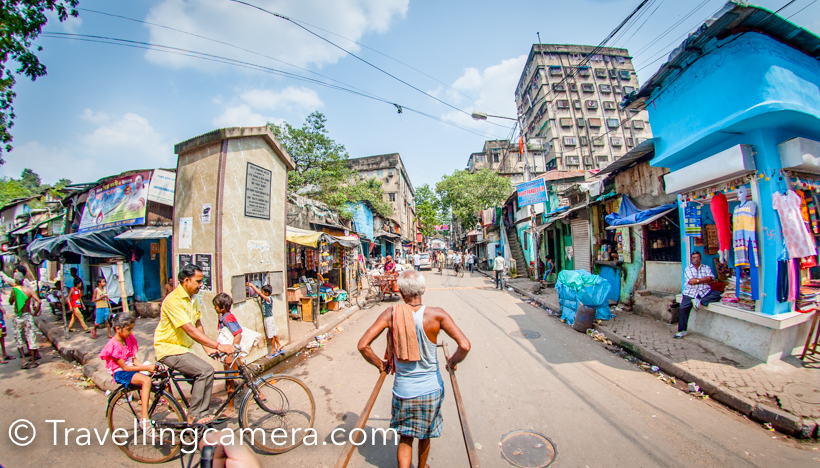

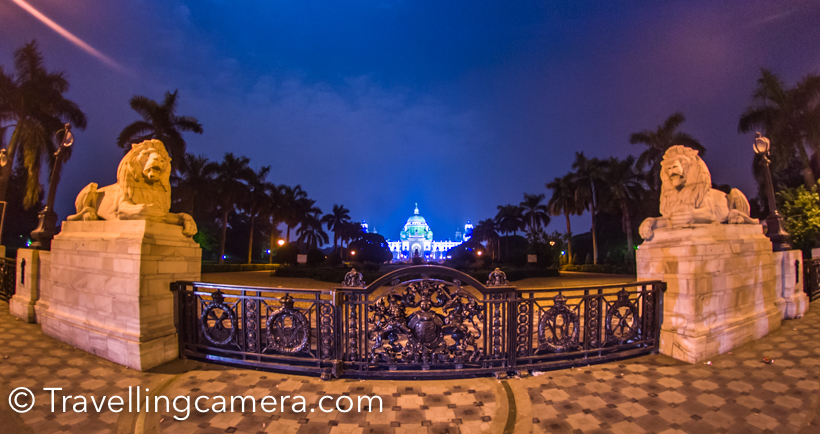




















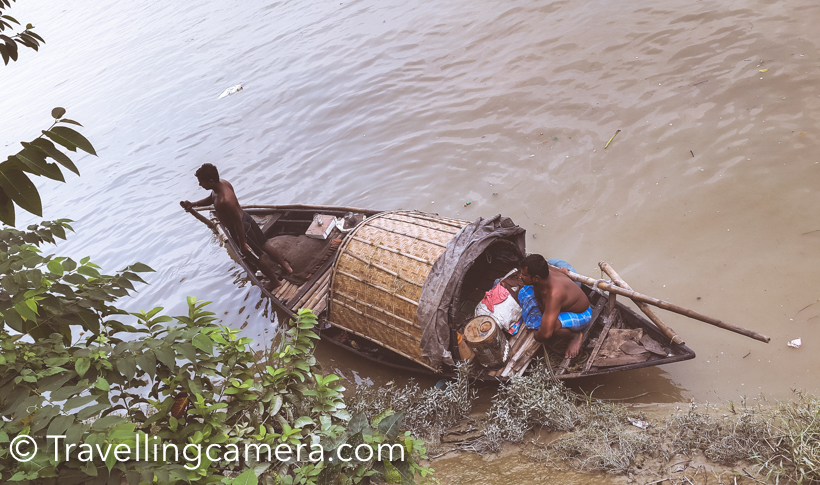

















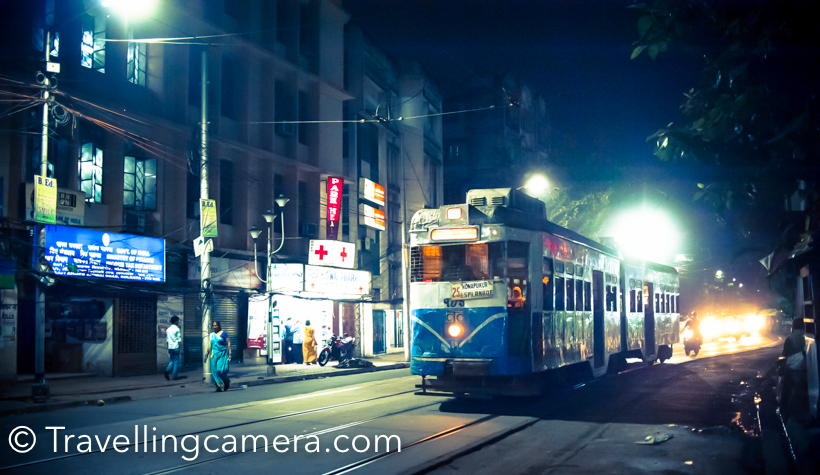
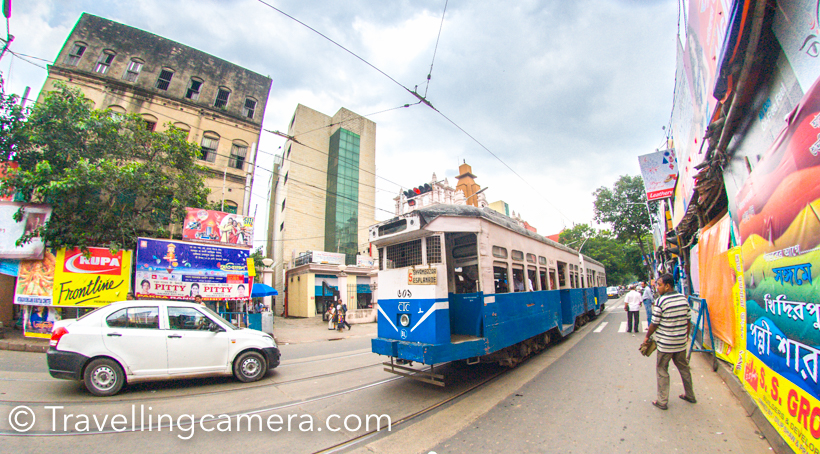


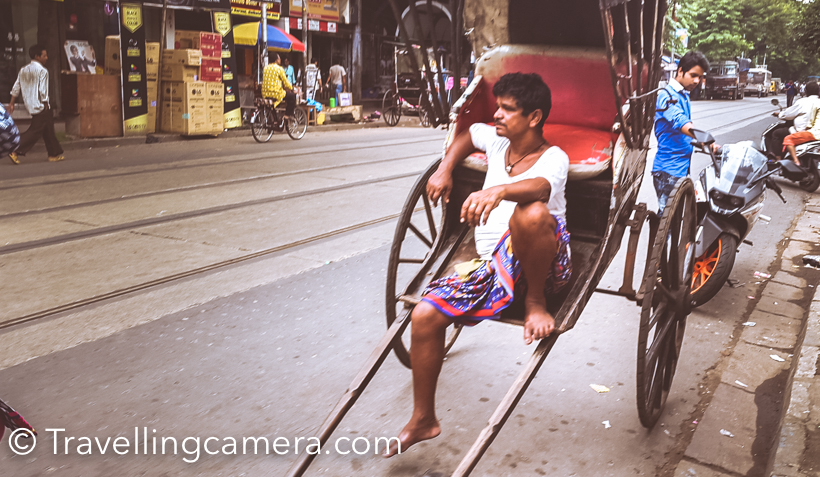


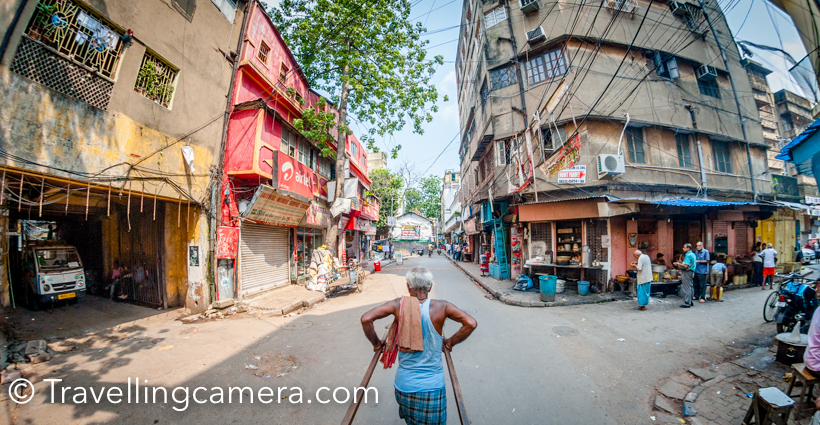

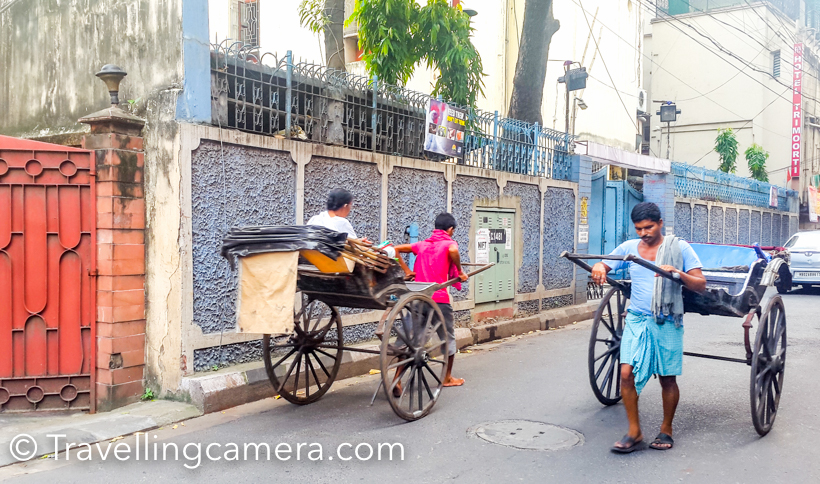




.jpg)
Comments